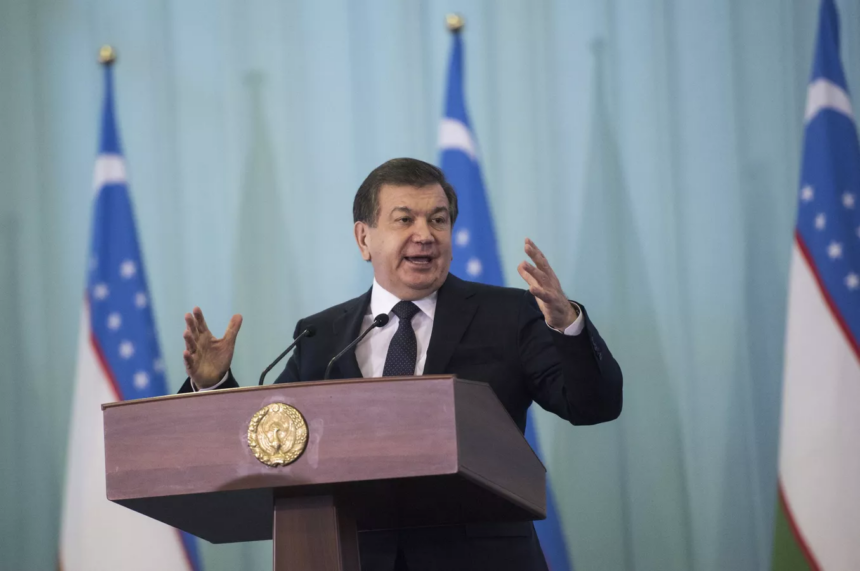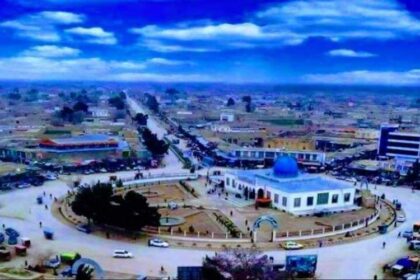RASC News Agency: Shavkat Mirziyoyev, President of Uzbekistan, has once again underscored the urgent need to prevent Afghanistan’s complete international isolation, advocating for pragmatic engagement with the Taliban while stopping short of endorsing their rule. Speaking at the Tashkent International Investment Forum on June 10, Mirziyoyev emphasized that regional development is intrinsically linked to the stabilization of Afghanistan though he remained silent on the regime’s egregious human rights record and lack of legitimacy. According to an official statement issued by the Uzbek presidency, Mirziyoyev stated:
“One of the most pressing global priorities is to establish a path toward peaceful and sustainable development in Afghanistan.” He added that, “more than ever, the international community should seek constructive dialogue with Taliban authorities, rather than pursue a strategy of exclusion.”
Despite this call for dialogue, Uzbekistan like every other nation has not formally recognized the Taliban as the legitimate government of Afghanistan. The group continues to be condemned internationally for widespread and systematic rights violations, particularly its brutal repression of Afghanistani women and girls, its dismantling of democratic institutions, and its silencing of dissent. Mirziyoyev warned that continued isolation of Afghanistan could obstruct economic integration and trigger instability throughout Central and South Asia. He highlighted that an economically stagnant and diplomatically isolated Afghanistan may become a breeding ground for extremism, jeopardizing the security of its neighbors.
Nevertheless, critics argue that engaging with the Taliban without holding them accountable emboldens a regime that has shown no willingness to reform. Since returning to power in August 2021, the Taliban have institutionalized gender apartheid, reintroduced public floggings and amputations, and eliminated all avenues for political pluralism effectively turning Afghanistan into a pariah state governed by fear and ideological rigidity. Despite these realities, Uzbekistan has maintained open diplomatic and economic channels with the Taliban, dispatching multiple official delegations to Kabul and participating in joint infrastructure and trade projects. Tashkent appears to be pursuing a policy of strategic pragmatism, balancing its economic interests with regional security considerations. Yet this engagement remains carefully framed Uzbekistan has not endorsed the Taliban regime nor offered formal recognition.
This is not the first time President Mirziyoyev has warned against isolating Afghanistan. In a previous statement delivered in March, he urged the international community not to allow the Afghanistani crisis to fall off the global agenda, asserting that the consequences of neglect could be severe and far-reaching. Uzbekistan stands among a small group of regional stakeholders that have publicly adopted a stance of “dialogue over confrontation” in their approach toward the Taliban. However, this policy is sharply at odds with the position of most Western governments and international human rights organizations, who have refused to normalize relations with the regime due to its record of systemic abuses, including the wholesale denial of education for girls and the eradication of press freedoms.
While Tashkent’s engagement is framed as a means of ensuring regional stability, rights groups warn that legitimizing the Taliban through diplomatic channels absent firm demands for reform risks rewarding authoritarianism and undermining the rights of millions of Afghanistani citizens, particularly women, girls, ethnic minorities, and dissidents who continue to suffer under a brutal and exclusionary regime. As Afghanistan’s humanitarian crisis deepens and the Taliban persist in imposing theocratic rule, Uzbekistan’s calibrated diplomacy reflects the growing dilemma faced by Afghanistan’s neighbors: whether to engage with a repressive regime for the sake of stability, or to uphold principles of justice and human rights by refusing normalization.






